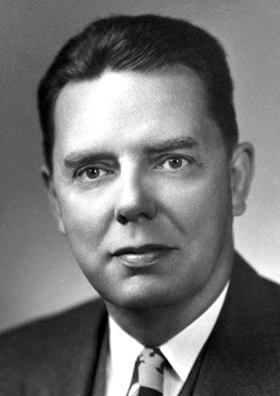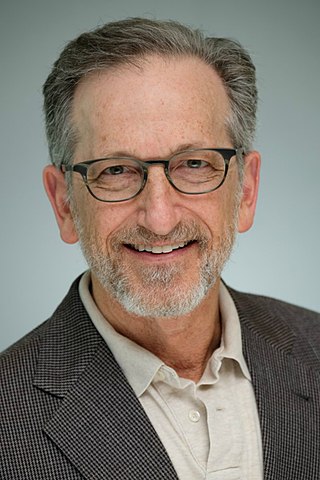Related Research Articles

Rheumatoid arthritis (RA) is a long-term autoimmune disorder that primarily affects joints. It typically results in warm, swollen, and painful joints. Pain and stiffness often worsen following rest. Most commonly, the wrist and hands are involved, with the same joints typically involved on both sides of the body. The disease may also affect other parts of the body, including skin, eyes, lungs, heart, nerves and blood. This may result in a low red blood cell count, inflammation around the lungs, and inflammation around the heart. Fever and low energy may also be present. Often, symptoms come on gradually over weeks to months.
Rheumatology is a branch of medicine devoted to the diagnosis and management of disorders whose common feature is inflammation in the bones, muscles, joints, and internal organs. Rheumatology covers more than 100 different complex diseases, collectively known as rheumatic diseases, which includes many forms of arthritis as well as lupus and Sjögren's syndrome. Doctors who have undergone formal training in rheumatology are called rheumatologists.

Philip Showalter Hench was an American physician. Hench, along with his Mayo Clinic co-worker Edward Calvin Kendall and Swiss chemist Tadeus Reichstein was awarded the Nobel Prize for Physiology or Medicine in 1950 for the discovery of the hormone cortisone, and its application for the treatment of rheumatoid arthritis. The Nobel Committee bestowed the award for the trio's "discoveries relating to the hormones of the adrenal cortex, their structure and biological effects."
Rheumatism or rheumatic disorders are conditions causing chronic, often intermittent pain affecting the joints or connective tissue. Rheumatism does not designate any specific disorder, but covers at least 200 different conditions, including arthritis and "non-articular rheumatism", also known as "regional pain syndrome" or "soft tissue rheumatism". There is a close overlap between the term soft tissue disorder and rheumatism. Sometimes the term "soft tissue rheumatic disorders" is used to describe these conditions.
Juvenile idiopathic arthritis (JIA) is the most common, chronic rheumatic disease of childhood, affecting approximately 16 to 150 out of 100,000 children. Juvenile, in this context, refers to disease onset before 16 years of age, while idiopathic refers to a condition with no defined cause, and arthritis is inflammation within the joint.

Barbara Mary Ansell, CBE, FRCP, FRCS was a British medical doctor and the founder of the field of paediatric rheumatology. Ansell was notable for outstanding contributions to the advancement of paediatric knowledge, specifically defining chronic joint disorders and the improvement of their management.

The Arthritis Foundation is a nonprofit organization that is dedicated to addressing the needs of people living with arthritis in the United States. There are nearly 60 million adults and 300,000 children living with arthritis, the nation's leading cause of disability. The Foundation works to provide information and resources, access to care, advancements in science and community connections.
Michael D. Lockshin is an American professor and medical researcher. He is known for his work as a researcher of autoimmune diseases, with focus on antiphospholipid syndrome and lupus. He is Professor Emeritus of Medicine and the Director Emeritus of the Barbara Volcker Center for Women and Rheumatic Disease at Hospital for Special Surgery. He retired from HSS on January 31st, 2023.

Lupus, technically known as systemic lupus erythematosus (SLE), is an autoimmune disease in which the body's immune system mistakenly attacks healthy tissue in many parts of the body. Symptoms vary among people and may be mild to severe. Common symptoms include painful and swollen joints, fever, chest pain, hair loss, mouth ulcers, swollen lymph nodes, feeling tired, and a red rash which is most commonly on the face. Often there are periods of illness, called flares, and periods of remission during which there are few symptoms.
ACR score is a scale to measure change in rheumatoid arthritis symptoms. It is named after the American College of Rheumatology. The ACR score is more often used in clinical trials than in doctor patient-relationships, as it allows a common standard between researchers.
James T. Rosenbaum is an American physician-scientist who is Senior Vice President for Research at Corvus Pharmaceuticals and Chief of Ophthalmology emeritus at the Legacy Devers Eye Institute, Portland, Oregon, where he held the Richard Chenoweth Chair. Previously, he was Chief of Arthritis and Rheumatic Diseases at the Oregon Health & Science University where he held the Edward E Rosenbaum Professorship in Inflammation Research. Rosenbaum was the only practicing rheumatologist/non-ophthalmologist in the world to serve as a chief of ophthalmology. He is recognized for his description of an animal model of uveitis resulting from injection of bacterial endotoxin and for more than 600 scholarly publications, mostly related to the intersection between rheumatology and ophthalmology. He is a co-author of the book, "The Clinical Neurology of Rheumatic Diseases".
Ephraim Engleman was an American rheumatologist and a Clinical Professor of Medicine at the University of California, San Francisco. He had a major national and international impact on rheumatology during more than six decades, and wrote more than one hundred scientific and medical papers.
Leonard Calabrese is an American rheumatologist, an osteopathic physician, and an internationally recognized HIV/AIDS and hepatitis C researcher at the Cleveland Clinic. Calabrese is the vice chair of the Cleveland Clinic's Department of Rheumatic and Immunologic Diseases and the co-director of the Center for Vasculitis Care and Research, while also serving as director of the Cleveland Clinic's RJ Fasenmyer Center for Clinical Immunology. He is also a medical professor at the Cleveland Clinic Lerner College of Medicine. Over the course of his academic research career, Calabrese has authored more than 300 publications including book chapters and peer-reviewed journal articles.
The Pan-American League of Associations for Rheumatology (PANLAR) is a non-profit organization composed of rheumatology associations from North, Central, and South America. The organization's main objective is to promote and advance the knowledge, education, research, and care in the field of rheumatology in the Americas. The mission of PANLAR is to stimulate, promote, and support research, the prevention, treatment, and rehabilitation of rheumatic illnesses. (1).

Axial spondyloarthritis is a chronic, autoinflammatory disease predominantly affecting the axial skeleton. The phrase itself is an umbrella term characterizing a diverse disease family united by shared clinical and genetic features, such as the involvement of the axial skeleton. The best-known member of the axial spondyloarthritis disease family is ankylosing spondylitis. The 2009 introduction of the expression axial spondyloarthritis made it possible to refer to (1) less severe forms of spondylitis, (2) the early phase of ankylosing spondylitis and (3) ankylosing spondylitis itself collectively.
Amita Aggarwal is an Indian clinical immunologist, rheumatologist and a Professor and Head at the Department of Clinical Immunology and Rheumatology of the Sanjay Gandhi Postgraduate Institute of Medical Sciences, Lucknow. Known for her studies in autoimmune rheumatic diseases, Aggarwal is a recipient of the Shakuntala Amir Chand Award of the Indian Council of Medical Research and an elected fellow of the National Academy of Sciences, India, National Academy of Medical Sciences and the National Academy of Medical Sciences. The Department of Biotechnology of the Government of India awarded her the National Bioscience Award for Career Development, one of the highest Indian science awards, for her contributions to biosciences in 2004.

Gary S. Firestein is an American rheumatologist, professor, and founding director of the Altman Clinical and Translational Research Institute (ACTRI) at the University of California San Diego and Senior Associate Vice Chancellor for Health Sciences at University of California, San Diego.
Nicola Dalbeth is a New Zealand academic rheumatologist whose research focuses on understanding the impact and mechanisms of gout. She supports clinical and laboratory research programmes and holds dual appointments as a full professor at the University of Auckland and as a consultant for the Auckland District Health Board.
Dafna D. Gladman, MD, FRCPC, is a Canadian doctor and medical researcher working in the fields of psoriatic arthritis, systemic lupus erythematosus, and rheumatoid arthritis. She is a professor at the University of Toronto Faculty of Medicine and Senior Scientist at the Krembil Research Institute. She is Deputy Director, Centre for Prognosis Studies in the Rheumatic Diseases, Co-Director, Lupus Clinic, Toronto Western Hospital (TWH) and Director, Psoriatic Arthritis Program, Toronto Western Hospital.

Sherine E. Gabriel is an Egyptian–Canadian rheumatologist and administrator. She is the fourth president of Rush University and James A. Campbell, MD, Distinguished Service Professor, having formally served as Dean of Robert Wood Johnson Medical School. In 2020, Gabriel was elected a Fellow of the National Academy of Medicine for "her leadership in academic medicine and recognition for being an inspiring thought leader in research, clinical business development and educational innovation."
References
- 1 2 3 "About Us". American College of Rheumatology. Archived from the original on 12 February 2008. Retrieved 20 April 2020.
- ↑ Maria Antonelli, Cassandra Calabrese, Leonard Calabrese, Irving Kushner: "A Brief History of American Rheumatology", the-rheumatologist.org, 16 December 2015
- ↑ "Publications & Communications". www.rheumatology.org. American College of Rheumatology. Retrieved 22 July 2022.
- ↑ American College of Rheumatology. "Classification and Response Criteria for Rheumatic Diseases". Archived from the original on 25 April 2010. Retrieved 2010-04-27.